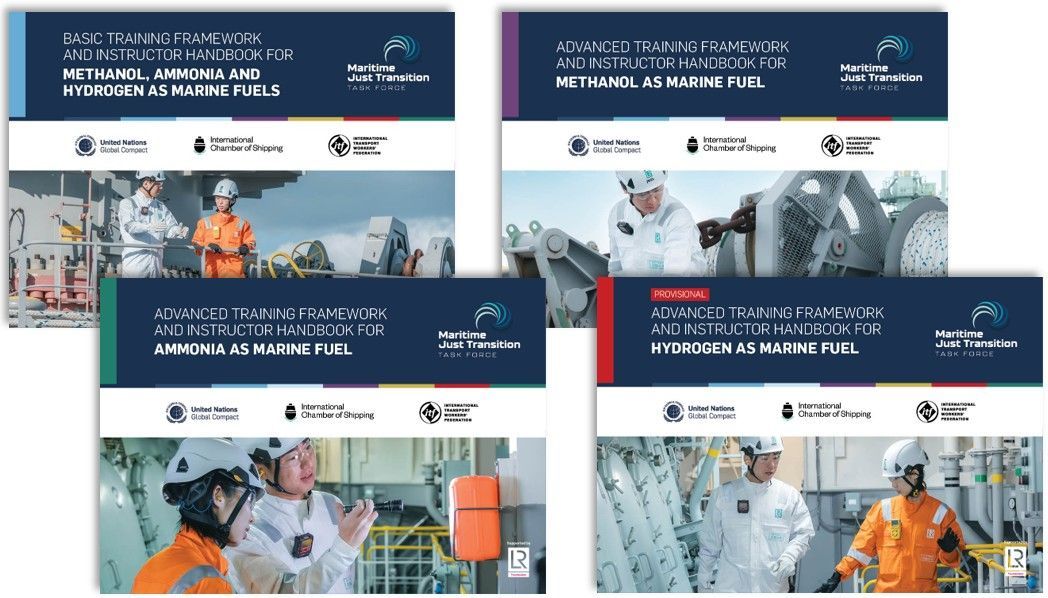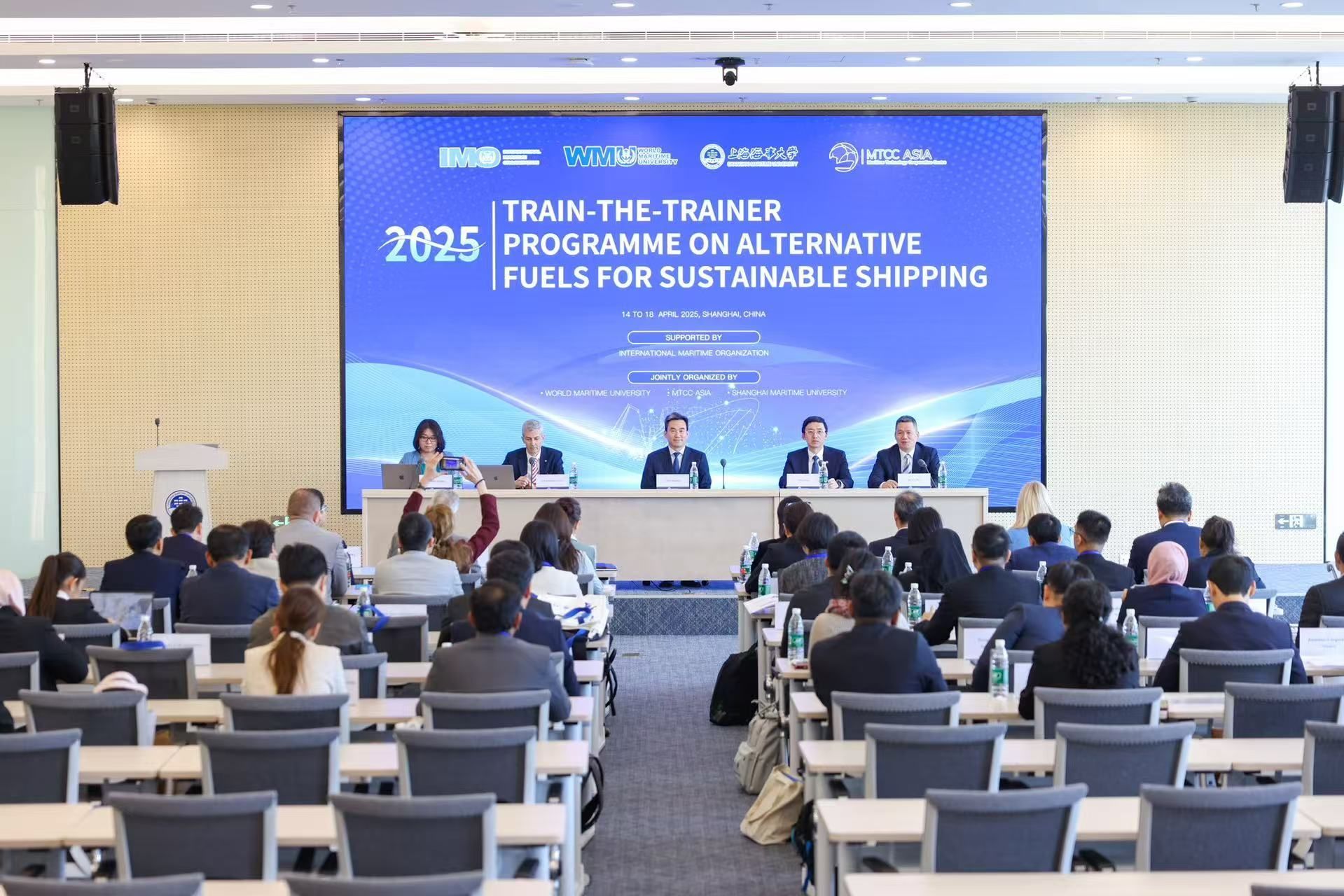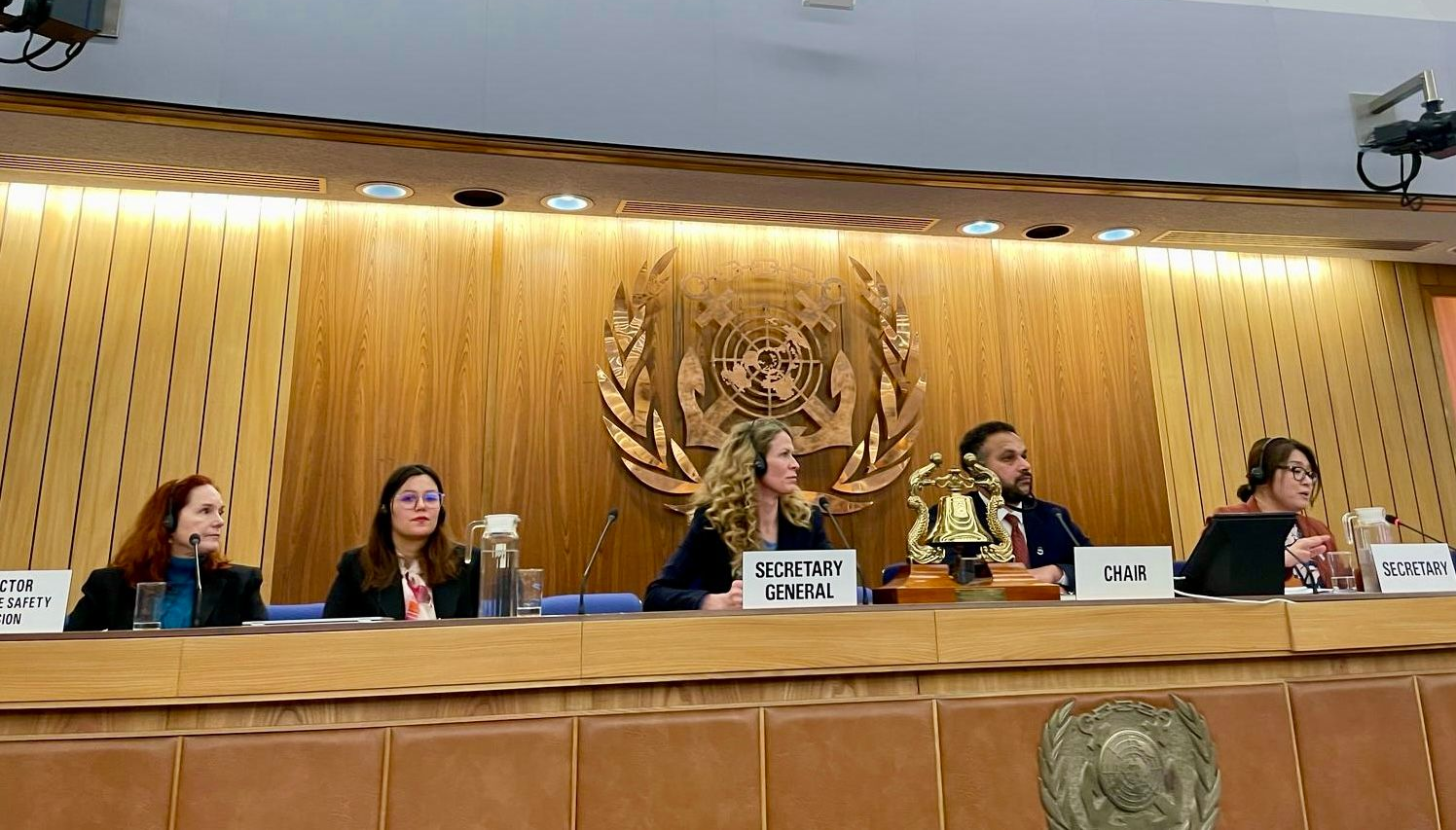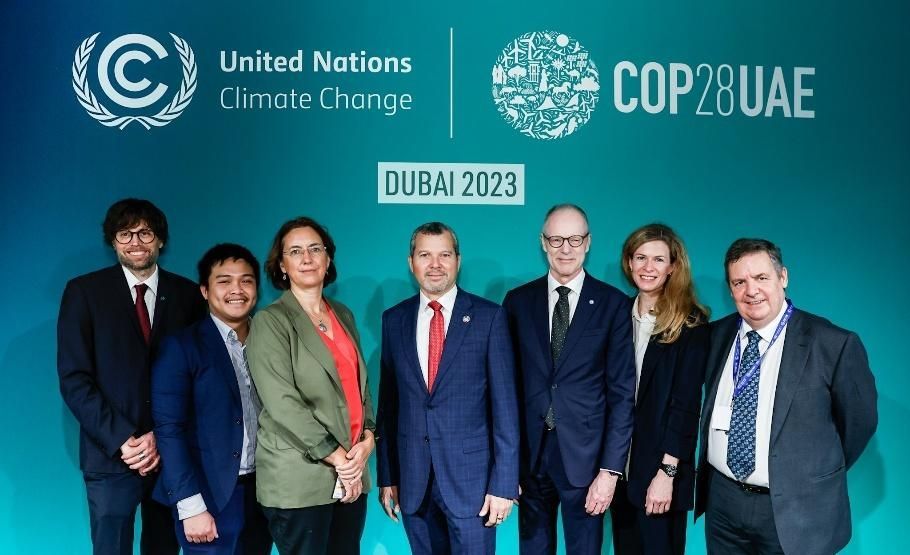News
Task Force Highlights and Maritime Insights
Maritime Transition Task Force launches first interim seafarer training frameworks for ammonia, methanol and hydrogen fuels
September 2025
The Maritime Just Transition Task Force (MJTTF) has today (17 September) released industry-first training frameworks designed to prepare seafarers for working on vessels powered by ammonia, methanol and hydrogen.
The training frameworks comprise both basic and advanced learning materials, addressing the needs of seafarers in entry-level or operational roles and senior officers, alongside comprehensive instructor handbooks.
The frameworks provide essential guidance in the absence of harmonised training standards for alternative fuels.

World’s first train-the-trainer programme for alternative fuels
April 2025
The World Maritime University (WMU), in partnership with the Maritime Technology Cooperation Centre (MTCC) Asia at Shanghai Maritime University, has successfully delivered the world’s first full-scale Train-the-Trainer Programme on Alternative Fuels for Sustainable Shipping.
Commissioned by the International Maritime Organization (IMO), the programme was held from 14 to 18 April in Shanghai, China. It forms part of the Maritime Just Transition Task Force project, which is developing a global baseline training framework to support the safe and effective use of alternative fuels. By equipping trainers with the knowledge and skills to educate both seafarers and shore-based personnel on fuels such as ammonia, methanol, and hydrogen, the initiative plays a vital role in preparing the maritime industry for a safe, sustainable, and decarbonised future.

Reflections from HTW 11 – what is next for seafarers in a decarbonised shipping industry?
February 2025
This blog post by Alishba Zaman outlines what the MJTTF proposed to the 11th session of IMO’s Sub-Committee on Human Element, Training and Watchkeeping, and what was achieved.
Generic interim guidelines were finalized. Fuel-specific guidelines are being drafted for methanol/ethanol, ammonia and other fuels and technologies. Until these guidelines are adopted as mandatory, they will outline recommended competencies, and knowledge, understanding and proficiencies (KUPs) to be achieved. The joint ICS-ITF submission contributed to the progress. Our proposed KUPs for the zero- and near-zero GHG emission fuels are now serving as a base document for further developments of fuel-specific guidelines. The work will continue in a correspondence group.

Launch of the joint IMO-MJTTF project Baseline Training Framework for Seafarers in Decarbonisation
November 2023
A Maritime Just Transition Task Force collaborative project is setting the framework to equip seafarers with skills as shipping transitions to zero emissions. The project is set to develop a training framework to equip seafarers with skills as shipping transitions to zero greenhouse gas emissions.



